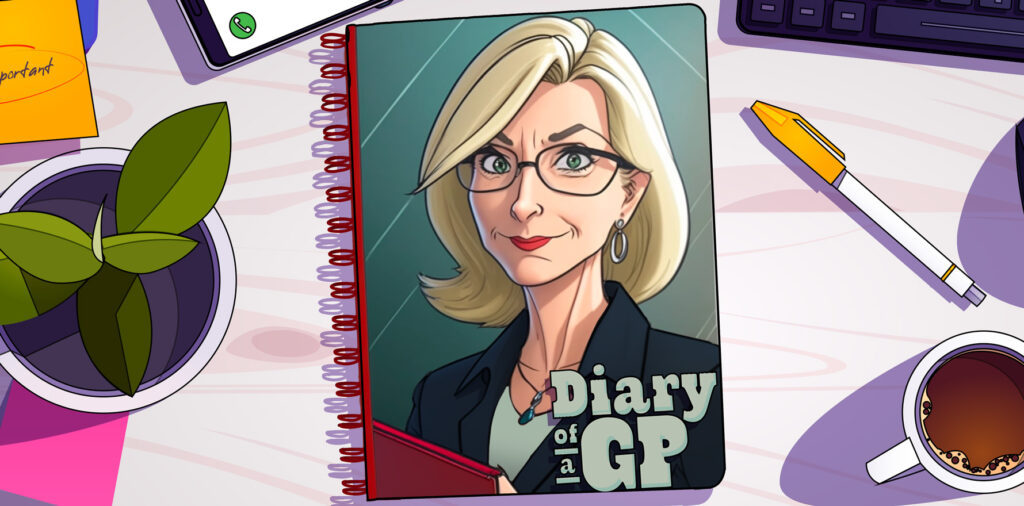Sometimes it feels there is nothing we can actually do for a patient except stick around with them.
Nothing like a holiday to recharge your batteries.
A few weeks off was just the ticket to renew my enthusiasm for the challenges and rewards that make up general practice … or that’s how it seemed for at least the first few hours back.
The patient that brought me thudding back to earth was my classic Achilles heel patient – one of my chronic, complex mental health patients. I don’t know about you, but I find patients with these long-term, remitting and relapsing psychiatric conditions particularly difficult and draining. The wins seem incremental and often completely independent of anything I do, despite my best efforts.
Carol* was the case in point. I’ve known Carol for over a decade and at first meeting she reported a history of schizoaffective disorder and ADHD. She has seen the same psychiatrist over this entire time who has had her on a cocktail of medications. Generally speaking, aside from some paranoid delusions and a somewhat unrealistic belief in her own abilities, Carol, who is about 60, had been doing okay – until about a year ago.
She had a fall, nothing bad, no head injury, but it seems to have triggered a downward mental spiral that I can’t seem to halt for love nor money. The psychiatrist is involved (thankfully) and has intensified treatment, but the particularly stressful aspect for me is that Carol is blaming all this deterioration (as well as all her previous psychiatric episodes) on a metal plate that was implanted to cover a skull defect after an accident some years back. She’s not blaming the previous head injury (the psychiatric illness predates it) but the actual implant itself and she is adamant she wants it out. Now.
Imaging shows there is no encroachment on brain tissue and the brain itself looks fine. And Carol is not complaining of pain or any neuro symptoms – it is the “electrical signals transmitted from the plate” that are the problem.
The psychiatrist knows this and is doing all he can but, in the meantime, until this particular exacerbation settles, if it settles, what do I do? She keeps coming back wanting treatment and a referral. I have tried reason, evidence and reassurance – I have explained the risks of doing such surgery are likely to preclude any surgeon taking it on and even if they did it is unlikely to help. All I manage to achieve is an escalation in Carol’s distress.
So what’s left? I tried referring to the local traumatic brain injury clinic – unsurprisingly, they rejected the referral saying it was inappropriate. Next, I’m trying the neurology clinic. We’ll see.
I find this so difficult. It’s obvious Carol needs psychiatric help but she doesn’t see it, and she’s not sufficiently psychotic (I believe) to schedule – so we are caught in this strange therapeutic tango.
I feel I am simply placating my distressed patient by referring to these clinics. I’m buying some time by most likely wasting the time of these clinic doctors, all in the hope that the combination of medication and time will start to work and Carol’s obsession with the implant will lessen. Hardly the stuff of medical genius, is it? John Murtagh didn’t waste too many pages on this particular treatment algorithm, did he?
I know not all mental illness is this difficult to manage and to be honest, it’s not the mental illness itself that I find so frustrating and exhausting. It is the sense of powerlessness. I can see help is needed – but I have nothing.
To manage Carol’s distress I have to sympathise and empathise – which I do – but it isn’t easy without buying into the plate-is-the-culprit fixation, and so around we go again. Thank God the psychiatrist is involved.
My only solace is that most often when these patients do eventually improve they are almost always very grateful to their GP for “just being there”. They are usually thankful for the perceived support even if the reality is I did bugger all to expedite their recovery.
I don’t foresee any great solutions to this scenario and after a few decades in this general practice game you’d think I’d get used to episodes such as these. Hopefully Carol will start to recover her equilibrium soon and I can return to managing her hypertension and her occasional UTIs, which I’m just so much better at.
Aaah – the joys of general practice.


